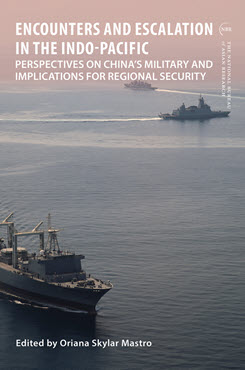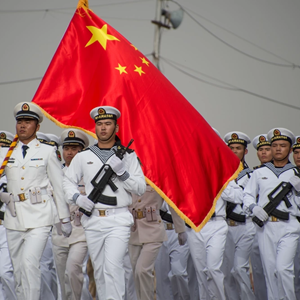Essay in NBR Special Report 108
Japan’s Encounters with China at Sea
The 2013 Fire-Control Radar Incident and Japan’s China Strategy
This essay analyzes China’s behavior during crises, considers the 2013 fire-control radar incident between the People’s Liberation Army (PLA) and the Japan Self-Defense Forces as a case study, and assesses Japan’s response to this and other incidents.
EXECUTIVE SUMMARY
MAIN ARGUMENT
The fire-control radar incident of 2013 took place during a period of heightened tension in Japan-China relations following Japan’s nationalization of the Senkaku Islands in 2012. Due to the increased activity of PLA naval and air forces in the East China Sea and the dramatic increase in the activity of Chinese government vessels in the waters surrounding the Senkaku Islands in the decade since, Japan has strengthened its surveillance of Chinese shipping and aircraft activities. China has taken dangerous actions to intimidate those surveillance activities, and Japan has responded by strengthening deterrence and stabilizing relations. Specifically, it has enhanced its deterrence toward China by strengthening its own defense capabilities, the Japan-U.S. alliance, and multilateral frameworks. Additionally, Japan has tried to reassure China and stabilize relations through summit diplomacy, crisis management, and the avoidance of horizontal escalation.
POLICY IMPLICATIONS
- In a crisis with China, both deterrence and stabilization of the bilateral relationship are necessary. Priority should not be placed solely on short-term fixes in a situation of ongoing, long-term great-power competition. Compromise without deterrence could lead to further coercive actions by China, and increased deterrence without stabilization could lead to instability.
-
To constrain China and garner support from the international community, it is important for Japan to publicize actions if they are seriously dangerous. Beijing will have a more difficult time taking a strong stance in situations where it cannot claim moral superiority.
- Summit diplomacy is crucial for managing a crisis. Given China’s political system, where power is concentrated among a limited number of top officials, including the supreme leader, consensus at the summit level is paramount for stabilizing a crisis. It would also be useful to try to make contact through various channels other than official diplomatic lines.
Yamaguchi Shinji is a Senior Fellow at the National Institute for Defense Studies (NIDS) in Japan.
NOTE: The views expressed in this essay are the author’s personal views and do not represent NIDS or the Ministry of Defense of Japan.



 Unpacking China's Military Decision-Making: Perspectives from the Region
Unpacking China's Military Decision-Making: Perspectives from the Region
